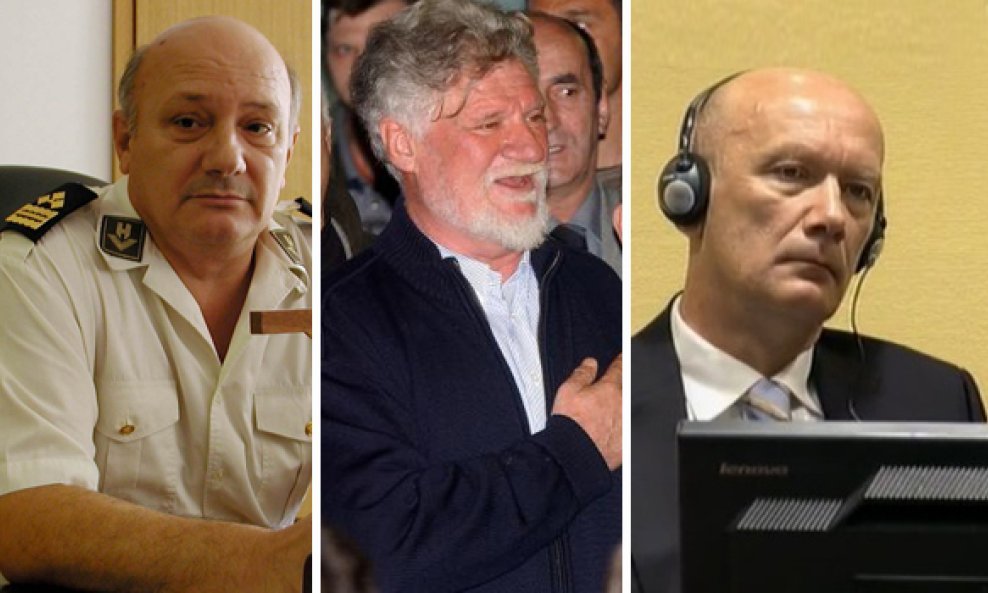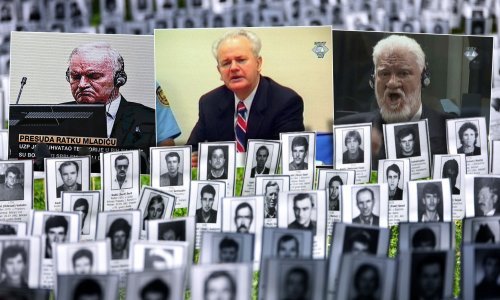The International Criminal Tribunal for the former Yugoslavia (ICTY) trial chamber in the case of six wartime Bosnian Croat leaders -- Jadranko Prlic, Bruno Stojic, generals Milivoj Petkovic and Slobodan Praljak, Valentin Coric and Berislav Pusic -- found by majority, with the Presiding Judge Jean Claude Antonetti dissenting, that the conflict between the Croat Defence Council (HVO) and the Army of Bosnia and Herzegovina in 1993 and 1994 was an international conflict and that crimes had been committed on the territory controlled by Herceg-Bosna within a joint criminal enterprise (JCE) involving some of Croatia's top officials, including the then President Franjo Tudjman.
According to the explanation of the verdict rendered on Wednesday in the ICTY's courtroom 1, the Republic of Croatia exerted overall control over the authorities of the Community of Herceg-Bosna which later became the Republic of Herceg-Bosna.
According to the explanation, Tudjman participated in the joint criminal enterprise and took part in the decision on changing the ethnic make-up of Herceg-Bosna.
The UN tribunal's trial chamber found that the six wartime Bosnian political and military leaders were members of a joint criminal enterprise the aim of which was to set up a Croat entity within the boundaries of the 1939 Banovina Hrvatska (Croatia's Banovina) and to reunite the Croatian people.
The trial chamber found by majority that the the plan of the then Croat leadership was to annex that entity to Croatia after a possible break-up of Bosnia and Herzegovina or to ensure the existence of the entity as an independent state within Bosnia and Herzegovina with close ties with Croatia.
According to the explanation, the then leadership of the Bosnian Croat people, including Mate Boban, and Croatia's top officials including President Franjo Tudjman came to a conclusion that it was necessary to change the ethnic structure in the said territory in order to establish the Croat entity.
As part of their implementation of the joint criminal enterprise, Franjo Tudjman, Gojko Susak, Janko Bobetko, Mate Boban, Jadranko Prlic, Slobodan Praljak, Valentin Coric, Milivoj Petkovic Bruno Stojic and Berislav Pusic coordinated among each other and used the bodies and troops of the Bosnian Croat Defence Council (HVO) for the purpose of accomplishing the Joint Criminal Enterprise's goals, the UN tribunal's three-member trial chamber said in the verdict in the case of Prlic and others.
The trial chamber found that they had been aware that the accomplishment of those objectives was in contravention with the peace negotiations in Geneva.
The implementation of the joint criminal enterprise started in January 1993 when the HVO launched military campaigns including the deportation of Bosnian Muslims (Bosniaks) and the organised departure of Croats from central Bosnia into areas under the control of Herceg-Bosna.
Many crimes committed by the HVO were interpreted by the trial chamber as an obvious pattern of behaviour and proof that they were not committed by nonorganised groups but were an outcome of the plan devised by the Joint Criminal Enterprise members.
The war crimes cited in the indictment against Prlic and others include the murder of Muslims, destruction of their property, deportation, mistreatment, systematic exploitation of POWs for forced labour or as human shields.
The ICTY trial chamber today found the six war-time Bosnian Croat leaders guilty of war crimes against local Bosniaks, handing down long prison terms and ruling that a joint criminal enterprise, led by late Croatian President Franjo Tudjman, was conducted.
The then Prime Minister of the Croat Community of Herceg-Bosna, Jadranko Prlic, was sentenced to 25 years in prison, Defence Minister Bruno Stojic to 20, the Commanders of the Croat Defence Council (HVO), generals Milivoj Petkovic and Slobodan Praljak, to 20 years, HVO Military Police Commander Valentin Coric to 16 and the head of the Office for Exchange of War Prisoners, Berislav Pusic, to ten years in prison.






![[FOTO] Na Laništu opet naslikan mural Slobodanu Praljku, što će učiniti Tomašević?](/media/thumbnail/500x300/1598908.jpeg?cropId=0)
![[FOTO] Muškarac revoltiran uklanjanjem murala došao pred Gradsku upravu i pisao sprejem](/media/thumbnail/500x300/1568140.png?cropId=0)


























